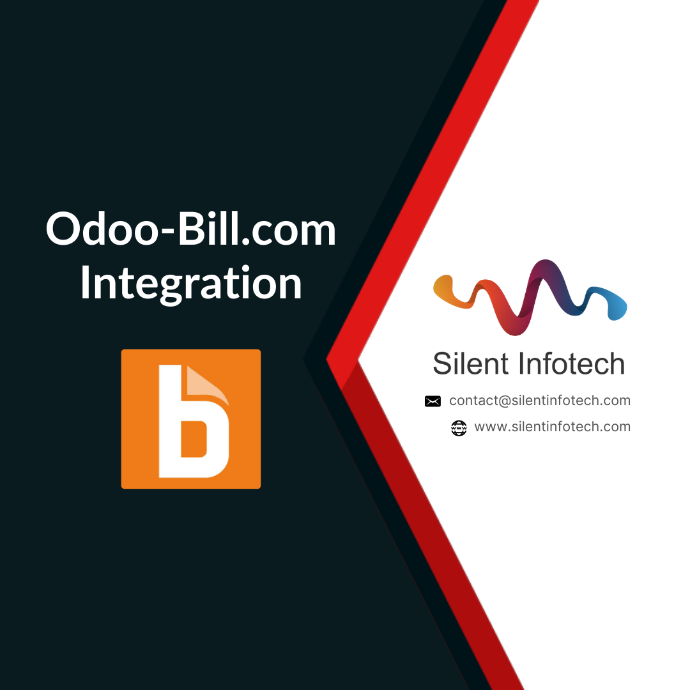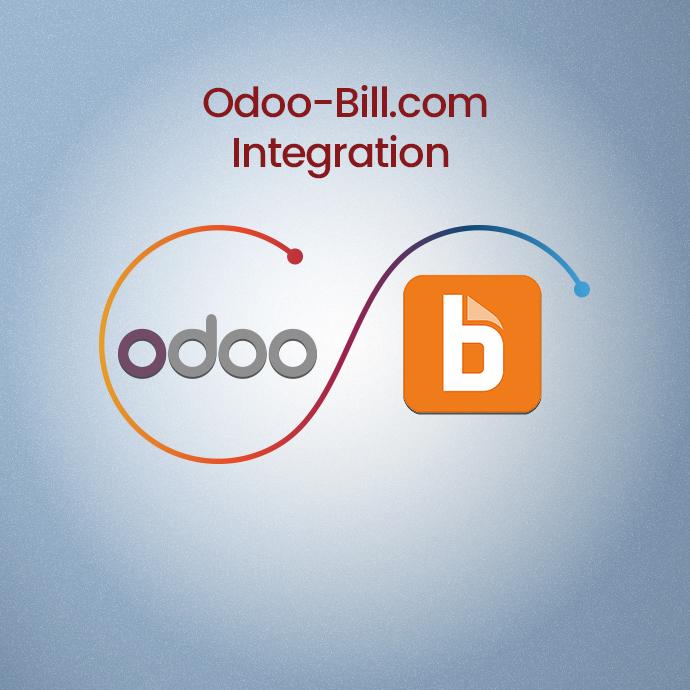
Odoo-bill.com module developed by Silent Infotech is fully compatible with Odoo Version 14, Odoo Version 15, Odoo Version 16, and Odoo Version 17, you can seamlessly integrate bill.com into your Odoo system. This compatibility ensures that businesses of all sizes can benefit from the streamlined financial processes offered by the odoo-bill.com integration.
Integration between Odoo and Bill.com is valuable for businesses seeking to streamline and automate their financial processes. bill.com a cloud-based platform, specializes in simplifying bill payment, invoicing, and cash flow management. On the other hand, Odoo is a versatile ERP software that encompasses various business functions such as accounting, sales, inventory, shipping, procurement, project management, and manufacturing.
By integrating bill.com-Odoo, businesses can establish a seamless data flow between Odoo and bill.com eliminating the need for manual data entry and minimizing the occurrence of errors. This integration facilitates the automatic transfer of payment information, including payment approvals, payment schedules, and vendor payment details. Furthermore, invoices generated within Odoo can be easily managed using bill.com simplifying the tracking and handling of payments.
The integration between bill.com and Odoo offers significant time and cost savings for businesses. By automating numerous financial tasks, companies can allocate their time and resources to more critical activities. Moreover, this integration enhances accuracy and reduces the risks associated with manual data entry.
Thus, the integration of bill.com and Odoo provides businesses with a comprehensive solution for managing their financial operations, such as accounts payable, accounts receivable, and cash flow management. This integration simplifies financial processes, boosts efficiency, and delivers real-time insights into the financial performance of businesses.
Get a FREE Consultation On Odoo - Bill.com Integration. Fill out the form below.
Features of Odoo-bill.com Integration Module
- Search Sync Bill In Odoo:
The integration allows users to easily search for and access vendor bills that have been synchronized from Bill.com directly within the Odoo platform. This convenient feature grants instant access to vital bill information, including payment statuses, due dates, and associated documents. As a result, users can efficiently manage and track bills within Odoo, streamlining their bill management processes.
- Vendor Bill Sync And Its Status:
By integrating Odoo and Bill.com, vendor bills and their corresponding statuses can be synchronized seamlessly. This integration ensures that crucial information such as due dates, amounts, and payment statuses remains consistently updated and aligned between Odoo and Bill.com. This synchronization eliminates discrepancies and enables businesses to maintain accurate and real-time data across both systems. - Vendor Bank Account Sync:
With the integration, businesses have the capability to synchronize a vendor’s bank account with bill.com, streamlining the management of accounts payable. This integration simplifies the process of handling vendor payments, making it easier for businesses to track and manage payment transactions. By linking the vendor’s bank account, businesses can enhance the efficiency and accuracy of their accounts payable processes. - Bill Payment Sync:
By integrating Bill.com with Odoo, businesses can seamlessly synchronize bill payment data from bill.com to Odoo. This integration simplifies the management of accounts receivable by facilitating the transfer of relevant payment information. As a result, businesses can effectively track and manage their accounts receivable within Odoo, streamlining their financial processes and improving overall efficiency.
- Vendor Sync:
Through the integration of Odoo and Bill.com, businesses can achieve a seamless synchronization of vendor data. This integration ensures that vital vendor details, including names, contact information, payment terms, and other relevant data, remain consistent and accurate across both platforms. By harmonizing vendor information, businesses can enhance efficiency and maintain reliable records within their systems.
- Search Sync Vendor In Odoo:
With the integration in place, Odoo offers users a comprehensive search functionality to effortlessly find and retrieve vendor information synced from Bill.com. This convenient feature allows users to access crucial details such as vendor information, transaction history, and associated documents directly within Odoo. - Selective Bill Synchronization:
Within the integrated system, businesses have the flexibility to choose specific bills to be synchronized with Bill.com. Additionally, they have the option to unsync any bills that are not required within the bill.com platform. This capability empowers businesses to selectively manage the synchronization process, ensuring that only relevant bills are transferred and synchronized, thus optimizing the efficiency of their financial operations. - Vendor Updates:
Through the integration, vendor details can be seamlessly synchronized and updated from Odoo to Bill.com. This integration ensures that essential vendor information remains consistent and up-to-date across both platforms. By synchronizing vendor details, businesses can maintain accurate and synchronized records, streamlining their vendor management processes and fostering efficient collaboration between Odoo and Bill.com.
Supported Editions
- Community
- Enterprise
Would you like To Integrate Bill.com With Your Current Software? Silent Infotech Can Help.
Note:
For Integration with Bill.com, the customers(who bought our Bill.com Integration App) will require the application key. Please contact the Silent Infotech Team to get access to the Application Key. Connect with our team at contact@silentinfotech.com
